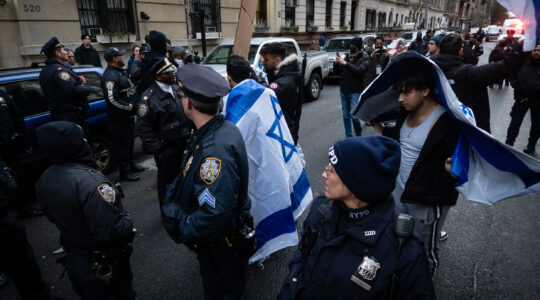BUDAPEST, Dec. 17 (JTA) — The intervention of Jewish community leaders here was largely responsible for the banning of a new translation of Adolf Hitler’s “Mein Kampf.” The leaders complained last month to the district attorney’s office about the publication of the anti-Semitic work, Peter Feldmayer, the president of the Jewish community, said in an interview. Within three weeks, public prosecutors suspended sales of the translation, citing a law prohibiting the incitement of racial hatred. Some 2,000 copies of the book have been sold in Hungary since its publication in October, and the book’s publisher and translator, Aron Monus, has vowed to seek legal action to publish a second edition. The book was advertised in November in the far-right newspaper Demokrata, and some copies were sold during a recent far-right gathering held in a former synagogue in the town of Szekszard. Monus has already published “Conspiracy Against Nietzsche’s Empire,” a tract alleging that Jews paid Hitler to carry out the Holocaust. In his epilogue to “Mein Kampf,” Monus characterized the book as the “cultural heritage of mankind.” A court is expected to rule within two months on whether the publication ban violates Monus’ right to free speech. Monus’ announcement in May that he was planning to publish the translation created a controversy here. Local historians reacted with the assessment that a new translation of “Mein Kampf,” which was outlawed here during the postwar Communist regime, could prove dangerous if not accompanied by an appropriate explanatory text. Hungary had a prewar population of 800,000 Jews. About 600,000 died during the Holocaust. Today, the Hungarian Jewish community, the largest in Central Europe, numbers about 80,000.
Hungarian Jewish protests lead to ban of `Mein Kampf’
Advertisement





